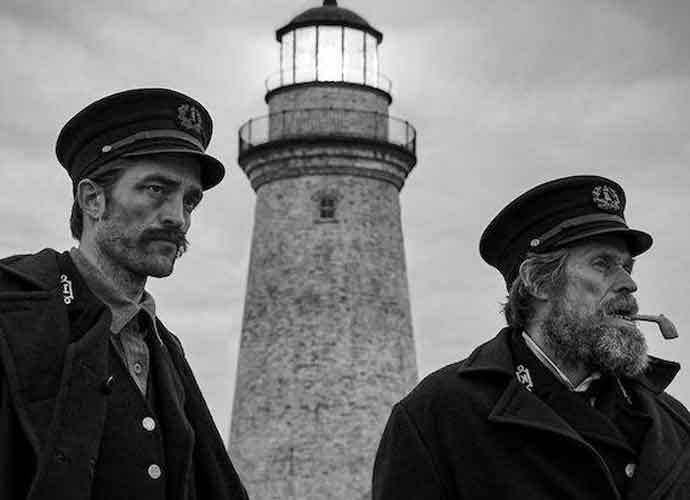‘The Lighthouse’ Blu-Ray Review: Robert Pattinson & Willem Defoe Shine In A Difficult, Confusing Triumph

4/5
If there is something writer/director Robert Eggers is known for, it’s certainly not carelessness. His 2015 debut feature The Witch made waves at the Sundance Film Festival for its tight, unsettling horror and its extreme period accuracy — taking quite a bit of its dialogue directly from historical sources.
Much of what made The Witch a unique and engaging watch is on full display in Eggers’s latest film as well. The Lighthouse is essentially a two-hander, with Robert Pattinson and Willem Defoe engaging in a 109 minute-long battle to see who can best sound like a character out of Moby-Dick. By my count, it’s a dead tie.
Pattinson plays Ephraim Winslow, a young man with a mysterious past assigned to care for the lighthouse on an isolated island in the Atlantic overseen by Thomas Wake, played by Defoe. Pattinson exercises a great deal of restraint for most of his performance, a decision which pays off in spades as things become more intense in the film’s finale. Defoe, on the other hand, absolutely commands the screen here, alternating between garish, vulgar, and desperate in remarkable succession and with incredible sincerity. The two actors deliver two remarkably different performances, making for a dynamic interplay between their contrasting demeanors.
It is ultimately this interplay that drives the film forward, with Winslow questioning his grip on reality early in his tenure and Wake doing very little to assuage his concerns. What might, in the hands of another director, be a simple trajectory towards either supernatural horror or psychological drama skillfully rides the line between both. Eggers’s steady hand and sense of remove constantly leaves the audience off-balance, questioning Winslow’s perception of events just as much as they question their own.
As the film moves along, however, Eggers becomes just a little too good at playing both sides. The movies leaves plenty of room for interpretation and disagreement throughout — this has the upside of allowing for a number of compelling readings of the film’s purposes and goals, but it also has the downside of imbuing the movie with so much ambiguity that the conclusion feels a bit more like a letdown than a gut punch.
Nearly all other aspects of the film, however, are more than praiseworthy. The black-and-white cinematography is truly stunning, looking a bit like if Wes Anderson decided to take a dive into the darkest corners of the human soul. Additionally, much of the film’s intensity is bolstered by its fantastic sonics, using silence and noise as weapons against the audience’s comfort.
The Blu-ray comes with a handful of special features that will be of great interest to any fans of the film. Along with a couple of deleted scenes and an insightful director’s commentary, the mini-feature “The Lighthouse: A Dark and Stormy Tale” is a helpful insight into some of the film’s subtler aspects — one that is invaluable for overcoming the onslaught of ambiguity Eggers leaves the audience with.
RELATED ARTICLES
Get the most-revealing celebrity conversations with the uInterview podcast!







Leave a comment